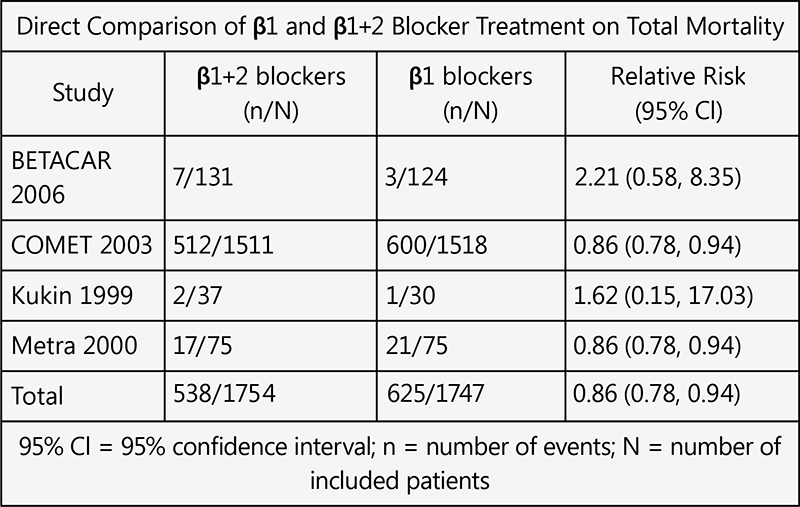INDICATIONS AND USAGE: INDERAL® LA (propranolol hydrochloride) Long-Acting Capsules are a beta adrenergic blocker indicated for the treatment of high blood pressure (hypertension), angina pectoris and hypertrophic subaortic stenosis. INDERAL® LA is also indicated for the prevention of migraine headache. Lowering blood pressure can reduce the risk of fatal and nonfatal cardiovascular events, primarily strokes and myocardial infarctions.
LIMITATION OF USE: INDERAL® LA is not indicated in the management of hypertensive emergencies.
Important Safety Information About INDERAL® LA
Contraindications
Propranolol is contraindicated in 1) cardiogenic shock; 2) sinus bradycardia and greater than first-degree block; 3) bronchial asthma; and 4) in patients with known hypersensitivity to propranolol hydrochloride.
Warnings and Precautions
Angina Pectoris: There have been reports of exacerbation of angina and, in some cases, myocardial infarction, following abrupt discontinuance of propranolol therapy. Therefore, when discontinuance of propranolol is planned, the dosage should be gradually reduced over at least a few weeks, and the patient should be cautioned against interruption or cessation of therapy without the physician’s advice. If propranolol therapy is interrupted and exacerbation of angina occurs, it usually is advisable to reinstitute propranolol therapy and take other measures appropriate for the management of unstable angina pectoris. Since coronary artery disease may be unrecognized, it may be prudent to follow the above advice in patients considered at risk of having occult atherosclerotic heart disease who are given propranolol for other indications.
Hypersensitivity and Skin Reactions: Hypersensitivity reactions, including anaphylactic/anaphylactoid reactions, have been associated with the administration of propranolol.
Cutaneous reactions, including Stevens-Johnson Syndrome, toxic epidermal necrolysis, exfoliative dermatitis, erythema multiforme, and urticaria, have been reported with use of propranolol.
Cardiac Failure: Sympathetic stimulation may be a vital component supporting circulatory function in patients with congestive heart failure, and its inhibition by beta blockade may precipitate more severe failure. Although beta-blockers should be avoided in overt congestive heart failure, some have been shown to be highly beneficial when used with close follow-up in patients with a history of failure who are well compensated and are receiving diuretics as needed. Beta- adrenergic blocking agents do not abolish the inotropic action of digitalis on heart muscle.
In Patients without a History of Heart Failure, continued use of beta-blockers can, in some cases, lead to cardiac failure.
Nonallergic Bronchospasm (e.g., Chronic Bronchitis, Emphysema): In general, patients with bronchospastic lung disease should not receive beta-blockers. Propranolol should be administered with caution in this setting since it may provoke a bronchial asthmatic attack by blocking bronchodilation produced by endogenous and exogenous catecholamine stimulation of beta-receptors.
Major Surgery: Chronically administered beta-blocking therapy should not be routinely withdrawn prior to major surgery, however the impaired ability of the heart to respond to reflex adrenergic stimuli may augment the risks of general anesthesia and surgical procedures.
Hypoglycemia: Beta-blockers may prevent early warning signs of hypoglycemia, such as tachycardia, and increase the risk for severe or prolonged hypoglycemia at any time during treatment. Patients or caregivers should be instructed how to monitor for signs of hypoglycemia and to seek emergency treatment if severe hypoglycemia occurs.
Thyrotoxicosis: Beta-adrenergic blockade may mask certain clinical signs of hyperthyroidism. Therefore, abrupt withdrawal of propranolol may be followed by an exacerbation of symptoms of hyperthyroidism, including thyroid storm. Propranolol may change thyroid-function tests, increasing T4 and reverse T3, and decreasing T3.
Wolff-Parkinson-White Syndrome: Beta-adrenergic blockade in patients with Wolff- Parkinson-White syndrome and tachycardia has been associated with severe bradycardia requiring treatment with a pacemaker. In one case, this result was reported after an initial dose of 5 mg propranolol.
General: Propranolol should be used with caution in patients with impaired hepatic or renal function.
Beta-adrenergic receptor blockade can cause reduction of intraocular pressure. Patients should be told that INDERAL® LA may interfere with the glaucoma screening test. Withdrawal may lead to a return of increased intraocular pressure.
While taking beta-blockers, patients with a history of severe anaphylactic reaction to a variety of allergens may be more reactive to repeated challenge, either accidental, diagnostic, or therapeutic. Such patients may be unresponsive to the usual doses of epinephrine used to treat allergic reaction.
Adverse Reactions
The most commonly reported adverse reactions included the following: fatigue, dizziness, and constipation.
You are encouraged to report negative side effects of prescription drugs to the FDA at 1-800-FDA-1088 or www.fda.gov/medwatch or ANI Pharmaceuticals, Inc. at 1-800-308-6755.
Click here for Full Prescribing Information.
INDERAL® LA is a registered trademark of ANI Pharmaceuticals, Inc.
Marketed and distributed by: ANI Pharmaceuticals, Inc.


